Questionhi maggie, i came upon these 2 little indian ring neck parakeets after their tree had been felled. they were just a few days old then.. so i brought them home and its been 2 months now.. they are a lot healthier, adorable and fun loving.they have their own spacious cage . . but the problem is we cant have them for too long and we dont want to give them in adption either. we would like our birds to be free and happy. . my doubts concerning this are
1. by what age can they take care of themselves
2. what food do they eat in the wild.. will they be able to fetch for themselves..if given training
3. will they find a flock that will accept them
maggie please do reply...jade and emereld (my irn's) would be very hapy :)
AnswerHi,
That is great that you were able to rescue and raise these parakeets!
Usually Indian Ringneck Parakeets follow their mothers around and still get supplemental feedings until they are 3 to 4 months old.
Here are some things you can feed these chicks to help prepare them: seed mix of safflower, buckwheat, various millets, canary grass seed, oats, wheat and hemp; millet spray (also sprouted); sunflower in small quantities and sprouted; plenty of fruit (apple, banana, figs, grapes, rowan and elderberry); greenfood (dandelion, flowers, chickweed) and vegetables ( rose hips, half-ripened maize; carrot, sweet pepper, cucumber); eggfood, softened bread for weaning.
In the wild they eat: seeds, fruits, berries, flowers and nectar. And in some areas these birds gather in huge flocks and forage in grain, millet, rice and maize fields as well as fruit plantations (often causing considerable damage).
They need a large flight aviary to learn to fly and forage for food in. This should be located outdoors in a somewhat protected area. I would recommend letting the birds spend a few months in this aviary. You also don't want them to trust people, other animals, etc... If you are going to release them back into the wild- they need to be wild animals. Sometimes birds become too attached to people when hand-fed. If your birds come up to the cage to say hello, want to get onto your hand, etc... then they should remain in captivity as pets. If they are too tame and are released they will probably be caught by someone else (assuming the birds were someone's lost pet), or they might get injured by uncaring people, their dogs/cats/etc...
If you do decide to release them, when the time is ready- you can just open the aviary door and they will go out on their own. However, continue to put some food out for them for months to come (until they find a flock and go off on their own). I've worked with a bird rehabilitation facility in Northern California (United States), and this is what they did for baby birds that were found near the facility. Obviously, in the United States we don't have native parrots like Indian Ringnecks, so my experience is with finches, crows, and scrub jays mainly. Sometimes the birds would stick around and continue to be fed, but most of them would eventually go off on their own.
I hope this helps.
-Maggie

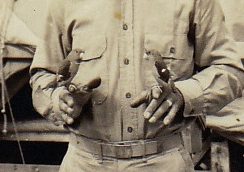 ID Birds
Question
Panama Birds
My uncle served in Panama in 1941
ID Birds
Question
Panama Birds
My uncle served in Panama in 1941
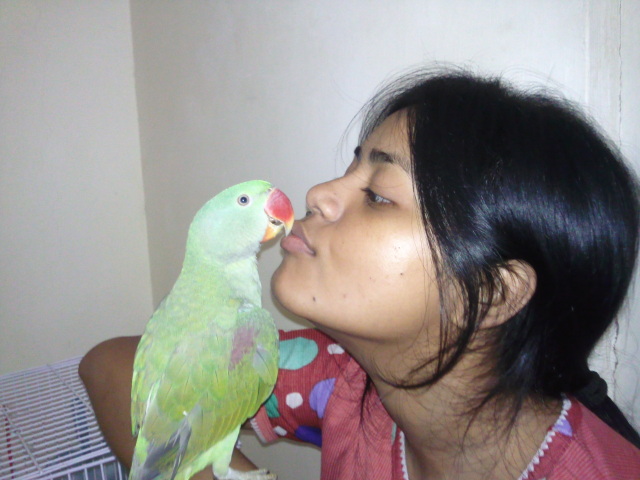 can i give my parrot chole(chana) called in hindi
Question
my little chaddi alexa
dear sir,
can give chan
can i give my parrot chole(chana) called in hindi
Question
my little chaddi alexa
dear sir,
can give chan
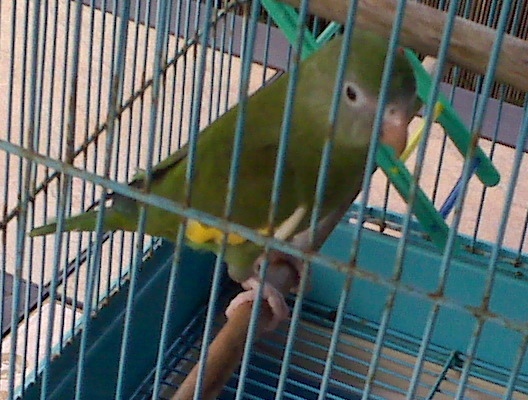 What type of parrot is this?
Question
Friendly bird
A week ago ths small parrot flew
What type of parrot is this?
Question
Friendly bird
A week ago ths small parrot flew
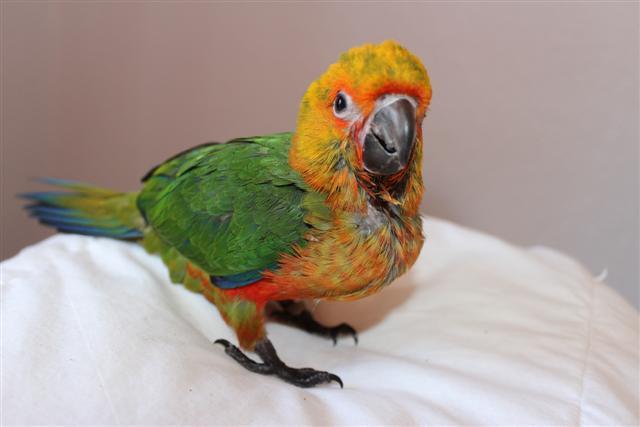 Jenday Conure Weaning?
Question
Castor the Conure
Hi
I have a 9 week o
Jenday Conure Weaning?
Question
Castor the Conure
Hi
I have a 9 week o
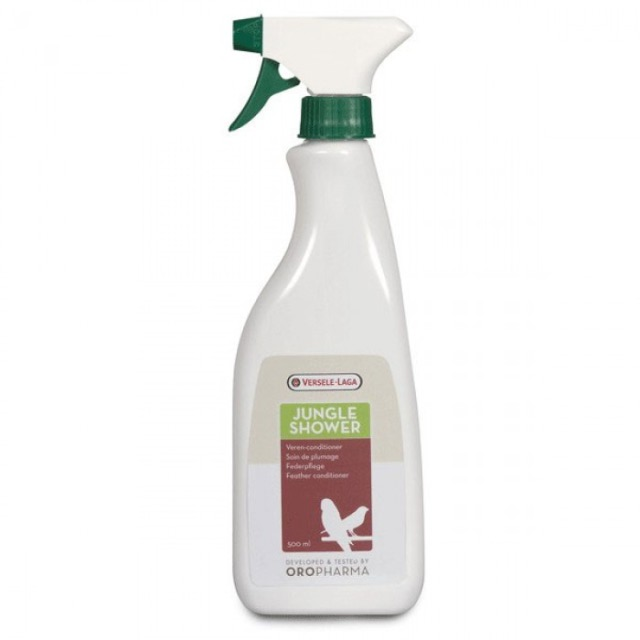 Indian Ringneck Health Issue
QuestionI have an Indian Ringneck who had been neglecte
Indian Ringneck Health Issue
QuestionI have an Indian Ringneck who had been neglecte